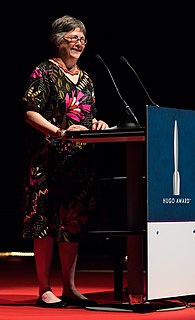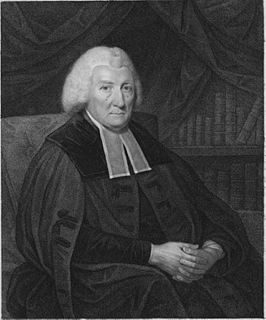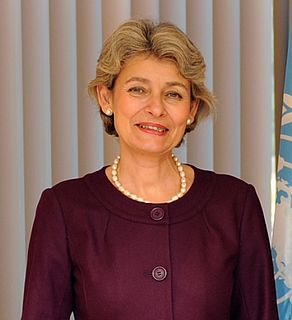A Quote by Ysabeau S. Wilce
After all, history is a type of fantasy. For all the primary source research, in the end, the past world the historian builds is as weird and remote from our own as Middle Earth or Narnia, yet oddly familiar.
Related Quotes
[talking about the Holocaust] 'But to put something in context is a step towards saying it can be understood and that it can be explained. And if it can be explained that it can be explained away.' 'But this is History. Distance yourselves. Our perspective on the past alters. Looking back, immediately in front of us is dead ground. We don't see it, and because we don't see it this means that there is no period so remote as the recent past. And one of the historian's jobs is to anticipate what our perspective of that period will be... even on the Holocaust.
When we work with history, to a very great degree we are all guessing. But by using motifs of time and history in a fantasy setting, we are acknowledging that this educated guesswork, invention, fantasy underlie our treatment of the past and its peoples - and we are not claiming a right to do with them as we will.
After all, is it not the way we humans shape the universe, shape time itself? Do we not take the raw stuff of chaos and impose a beginning, middle, and end on it, like the simplest and most profound of folktales, to reflect the shapes of our own tiny lives? And if the physicists are right, that the physical world changes as it is observed, and we are its only known observers, then might we not be bending the entire chaotic universe, the eternal, ever-active Now, to fit that familiar form?
The history of the genocide perpetrated during the Second World War does not belong to the past only. It is a ‘living history’ that concerns us all, regardless of our background, culture, or religion. Other genocides have occurred after the Holocaust, on several continents. How can we draw better lessons from the past?
Our world is not an optimal place, fine tuned by omnipotent forces of selection. It is a quirky mass of imperfections, working well enough (often admirably); a jury-rigged set of adaptations built of curious parts made available by past histories in different contexts. A world optimally adapted to current environments is a world without history, and a world without history might have been created as we find it. History matters; it confounds perfection and proves that current life transformed its own past.
How can I call security a woman's primary fantasy if I am saying it is also her primary need? Because while her primary need is the security of a home and a family circle, her primary fantasy is that someone else will earn enough to pay for them. Hence the focus of 2 billion women on the latest royal wedding.
It is easy to imagine fantasy as physical and myth as real. We do it almost every moment. We do this as we dream, as we think, and as we cope with the world about us. But these worlds of fantasy that we form into the solid things around us are the source of our discontent. They inspire our search to find ourselves.
Because now, you know, it's going to be a number of years yet before we have our own new boosters and new spacecraft to go to our own International Space Station and proceed with all the research that we spent $100 billion putting up there to give us that research capability for the future for people right here on Earth.


































